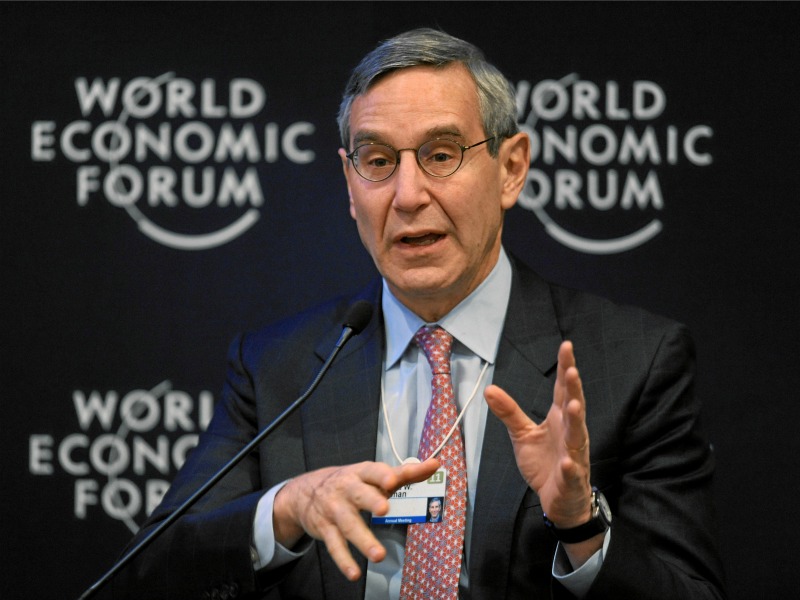Arun Sudhaman 26 Feb 2018 // 10:00AM GMT

NEW YORK — Edelman has reported 2017 revenue of $893.6m, the Holmes Report can reveal, representing reported growth of 2.1% at the world's largest PR firm.
The results point to a sustained slowdown at the iconic independent PR agency, after it grew 1.7% in 2016, following several years of high single-digit or double-digit growth that helped propel Edelman to the number one spot from 2011 onwards.
The slow rate of growth would also appear to confirm that the malaise among large PR networks is not confined to publicly-held companies alone. Edelman's nearest competitor Weber Shandwick reported a revenue decline in 2017, while Omnicom PR Group saw a marginal uptick, amid the toughest year for holding groups since the global financial crisis in 2009.
Edelman CEO Richard Edelman pointed to the performance of his rivals to help explain his own agency's results. "I would say that we've outperformed relative to the sector," he said. "Most of [our competitors] actually shrank. The story for PR is we have to evolve."
"Look at the ad agencies, look at WPP," added Edelman. "There's pressure on the sector as a whole — that's the key point."
As he did 12 months ago, Edelman blamed pressure on CCO budgets, noting that the industry must accelerate its reinvention if it hopes to access marketing spend. He also flagged the slowdown in CPG spending in 2017, along with specific geographic factors.
"We can't assume any longer that developing markets are necessarily automatic 10% growth every year," said Edelman.
North America was Edelman's strongest-performing region, up 3.3% to $581.9m. Europe declined slightly to $161.4m, with Edelman noting a slowdown in the UK business — which accounts for half of the firm's total business in the region. APACMEA, which saw a leadership transition from David Brain to Jesse Lin, increased slightly to $131.6m, while Latin America was effectively flat at $18.3m.
The firm's overall headcount increased to 5,940 from 5,903 a year earlier.
Edelman added that the firm "hardly grew" in the first half of 2017. "So we're going into this year with some steam," he said, pointing to the firm's Nissan win as its biggest account success of the year.
However, Edelman refused to accept that low single-digit growth represented the 'new normal' for big PR networks. "We've got to reinvent what normal is," he said. "We're going to have to compete with the ad agencies and with the digital firms. They are coming into our world — our competitors are no longer just Weber Shandwick and Ketchum. It's a battle for share of the wallet."
He also cited statistics on media decline — "the number of journalists has declined by more than half" — to help explain the pressure on communications budgets. "Half of the work is now social," said Edelman. "The budgets that we have to get as an industry, both on the corporate side and the brand side, are going to be dependent on our ability to attract eyeballs through social — this is where we have to prove advantage, and I think we can."
As an example, Edelman said that PR firms should be more adept at using digital platforms to drive employee communications. "Is R/GA top-class at reaching consumers? Yeah, absolutely. Are they top-class at reaching employees? I don't think so. It's not what they do. That's what we do. We have to make the case that we can do both."
The slowdown in Edelman's growth coincides with a broad attempt to restructure the agency's global talent, towards more specialist capabilities in response to the integration of earned and paid media. The agency has hired several high-profile names from the advertising world, along with more than 600 planners and creatives.
"We still are in the process of proving that our work can stand up to anybody," said Edelman. "Hires are for show, work is for dough. When we, literally as a category, stop losing to McCann Erickson at Cannes."
"I give [McCann CEO] Harris [Diamond] huge kudos for #FearlessGirl," continued Edelman. "Fantastic, but it comes from PR thinking that we have to apply broadly. We have to get to that."
Edelman also argued that Unilever CMO Keith Weed's recent comments suggesting the CPG giant would not advertise on tech platforms that create societal division could prove beneficial to the public relations industry.
"I do think Keith Weed's speech last week was damn important. That's money we don't always get access to. Any sort of reconsideration of proportionate spend helps us — that's a longer-term thing but I think that's an important one."
As for 2018, Edelman believes the firm is moving in the "right direction."
"We have the advantage of being independent, private and damn determined."



































.jpg)

















